
33.85 € Original price was: 33.85 €.19.75 €Current price is: 19.75 €.
★★★★★ 5/5
Sāciet palīdzēt cilvēkiem iegādāties vēlamos produktus!


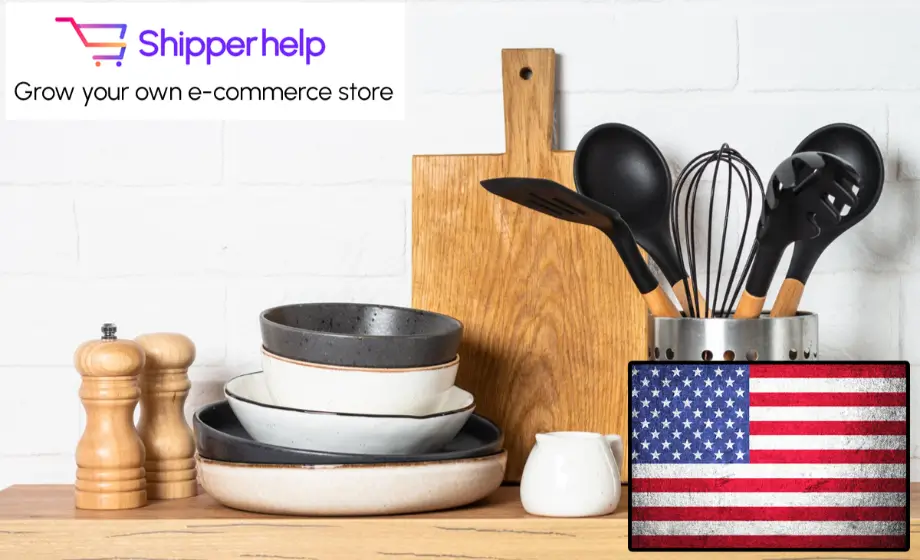
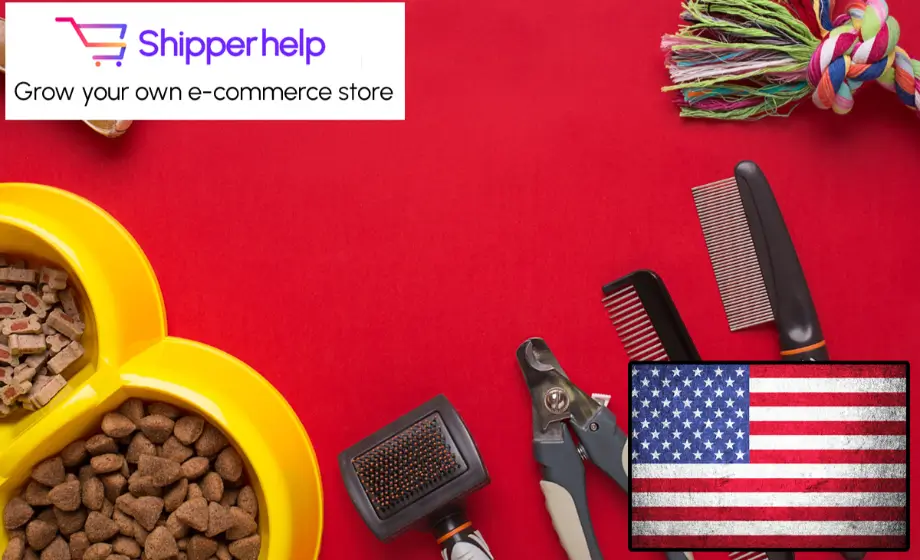
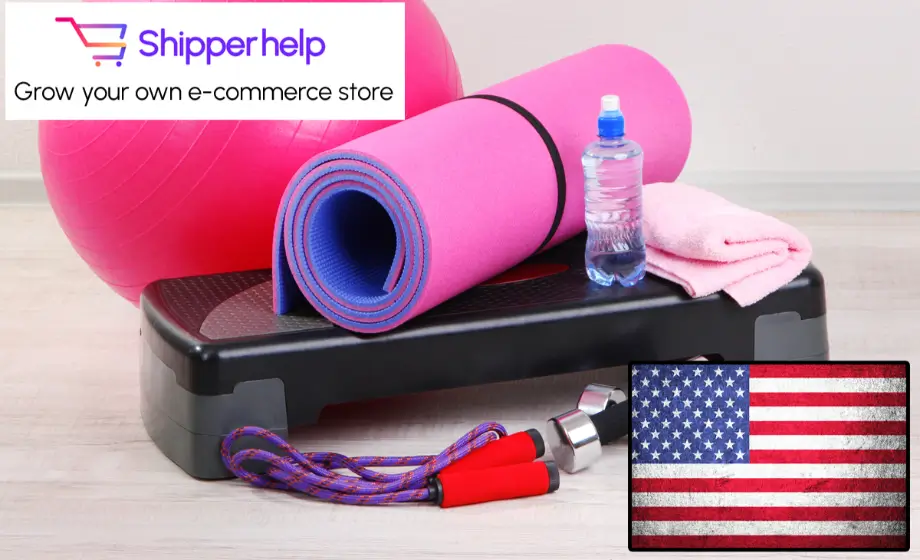
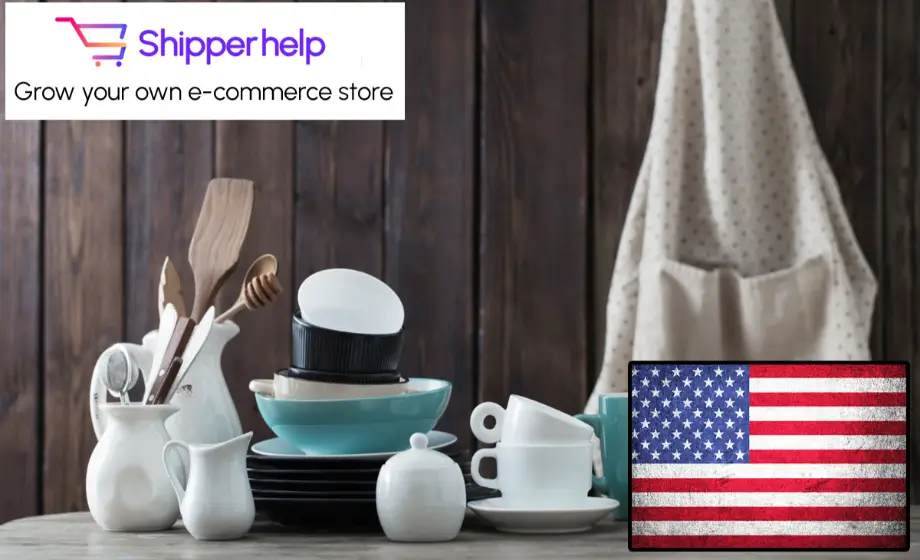

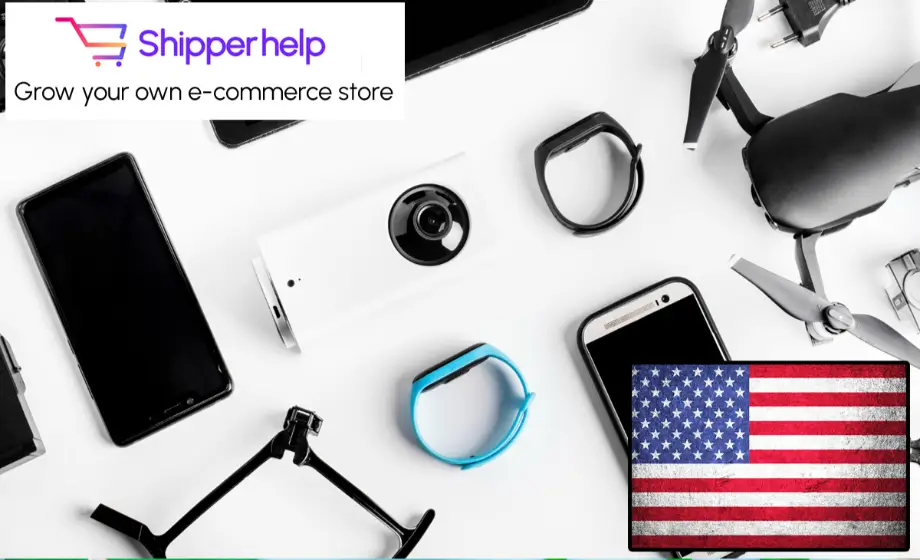
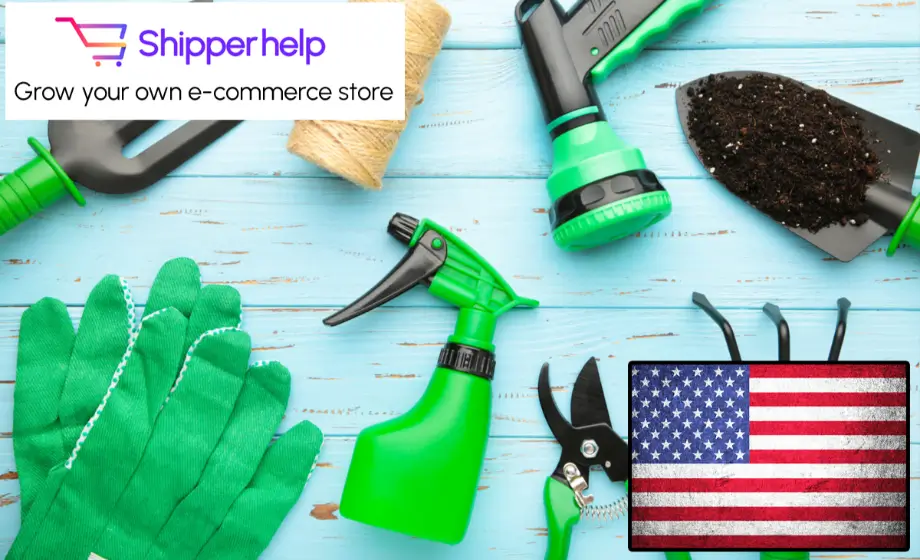
Dropshipping piegādātāju saraksta iegūšana ir vienkārša. Pēc droša maksājuma veikšanas, izmantojot tiešsaistes banku, jūs nekavējoties saņemsit saiti, lai lejupielādētu sarakstu pdf formātā.
Šeit jūs varat atrast labāko produktu piegādātājus no Polijas, piegādātājus no Turcijas, piegādātājus no Vācijas, citām Eiropas valstīm un visas pasaules. Atrodiet savu un sāciet pārdot jebkurā nišā.
Viss ir kārtīgi sakārtots, tāpēc jūs ietaupāt laiku un naudu, saņemot tikai nepieciešamo piegādātāju sarakstu. Ja jums pieder bērnu rotaļlietu veikals, jums nav jāmeklē erotikas preču piegādātāji.
Mūsu datubāzē ir vairāk nekā 1000 piegādātāju, tostarp vīriešu un sieviešu apģērbu, apavu, bērnu preču, elektronikas, mājsaimniecības, dārza, tūrisma, sporta, dzīvnieku izcelsmes produktu un daudz ko citu.
Sarakstā ir iekļauts liels skaits vairumtirdzniecības piegādātāju papildus dropship piegādātājiem. Ja jums ir pietiekami daudz naudas, varat iegādāties preces vairumā ar atlaidi un pārdot tās ar lielāku peļņas normu.
Vienojoties ar konkrētu piegādātāju, iespējams, varēsiet iegūt lielākas atlaides, tādējādi nopelnot lielāku komisiju par pārdošanu, vai arī varēsiet piedāvāt saviem klientiem iegādāties par konkurētspējīgām cenām.
When you’re diving into the world of wholesale purchasing in the United States, the first step is to understand the market’s vast and varied landscape. This insight is crucial for identifying suppliers that not only provide high-quality products but also align with your business needs in terms of reliability, pricing, and delivery schedules.
Market research is your roadmap through the complex terrain of wholesale suppliers. It helps you pinpoint the niches that are most profitable and in line with your business vision. Engaging in thorough market research allows you to understand industry trends, consumer demands, and, most importantly, the key players in the supply chain that can reliably meet your inventory needs.
One of the most effective strategies for finding reliable wholesale suppliers is through industry associations and trade shows. These platforms offer a concentrated look at the market, presenting opportunities to connect directly with suppliers, manufacturers, and wholesalers. Attending these events not only gives you a first-hand look at potential products but also allows you to gauge the professionalism and reliability of suppliers through direct interaction.
In today’s digital age, online directories and B2B marketplaces have become invaluable tools for finding wholesale suppliers in the United States. Platforms like ShipperHelp.com offer curated lists of suppliers and manufacturers, making it easier for businesses to find reliable partners.
ShipperHelp.com stands out by providing access to lists of vetted suppliers and manufacturers, ensuring that businesses can connect with reliable partners. These lists are more than just directories; they represent a selection of companies that have been evaluated for their quality, reliability, and business practices. Utilizing such a resource can save businesses considerable time and effort in their search for the right suppliers.
Finding potential suppliers is only the first step; evaluating them to ensure they meet your specific needs is crucial. Developing a robust supplier evaluation framework is essential for making informed decisions.
Your supplier evaluation framework should include criteria such as product quality, pricing, reliability, delivery schedules, and communication. Prioritize these factors based on your business’s unique needs to ensure that you partner with suppliers who can support your operational and financial goals.
Before finalizing a partnership with a wholesale supplier, request samples or place pilot orders to assess the quality of their products and their ability to meet delivery timelines. This step is critical in avoiding long-term commitments to suppliers that may not meet your standards.
In the modern business landscape, leveraging technology for supplier management can significantly enhance your efficiency and reliability in managing supply chains.
Utilize digital tools and platforms that offer features like inventory management, order tracking, and communication with suppliers. These tools can provide real-time insights into your supply chain, helping you make data-driven decisions and maintain a competitive edge.
Advanced analytics tools can analyze supplier performance data, helping you identify patterns and trends that may impact your supply chain. This data-driven approach allows for more strategic decision-making and ensures that your supplier relationships remain beneficial in the long term.
Finding reliable wholesale suppliers in the United States is a multifaceted process that requires thorough research, strategic planning, and ongoing management. By understanding the wholesale market landscape, leveraging resources like ShipperHelp.com, developing a comprehensive supplier evaluation framework, and utilizing technology for supplier management, businesses can establish strong, reliable supply chains that support their operational and financial goals. Remember, the right supplier relationships are key to business success, making the effort to find and maintain these relationships well worth it in the long run.
When it comes to optimizing your supply chain, the geographical location and capabilities of your suppliers play pivotal roles. United States suppliers offer a multitude of logistics and shipping advantages that can significantly impact your business operations. These benefits stem from the advanced infrastructure, technology-driven logistics, and strategic geographical positioning of the U.S.
U.S. suppliers are strategically located within a robust infrastructure network, including some of the world’s largest and most efficient ports, extensive railway systems, and a comprehensive network of highways. This logistical framework facilitates swift and efficient transportation of goods across the country and beyond. For businesses, this means reduced transit times and lower shipping costs, enhancing the overall efficiency of the supply chain.
Technological advancements are at the forefront of logistics improvements in the U.S. Suppliers in the United States leverage cutting-edge technology for inventory management, order processing, and transportation logistics, ensuring precise tracking and timely delivery of goods. This high level of technological integration allows for real-time updates and communication, providing businesses with critical insights into their supply chain operations.
The proximity of U.S. suppliers to domestic markets significantly reduces lead times, allowing businesses to respond more swiftly to market demands and fluctuations. This advantage is crucial for maintaining competitive edge and customer satisfaction. Additionally, the reliability of U.S. logistics, characterized by consistent delivery times and low rates of damaged goods, fosters a stable supply chain environment.
Partnering with U.S. suppliers can lead to substantial cost savings in logistics and shipping. The efficient domestic transportation network helps reduce the costs associated with long-distance shipments and international freight charges. Moreover, the scalability of services offered by U.S. suppliers ensures that businesses can adjust their logistics and shipping needs according to their growth and seasonal demands without compromising on cost or service quality.
Sustainability is increasingly becoming a critical factor in the logistics and shipping industry. U.S. suppliers are often at the forefront of implementing eco-friendly practices and technologies, such as using renewable energy sources, optimizing route planning to reduce fuel consumption, and employing sustainable packaging solutions. By choosing U.S. suppliers, businesses can contribute to environmental sustainability while also meeting the growing consumer demand for eco-conscious products and services.
The cumulative effect of reduced lead times, increased reliability, and the adoption of sustainable practices lead to enhanced customer satisfaction. When products are delivered promptly, in good condition, and with a smaller carbon footprint, it positively impacts the brand image and customer loyalty. U.S. suppliers, with their emphasis on quality and efficiency, play a vital role in helping businesses achieve these objectives.
The regulatory landscape for importing and exporting goods can be complex and challenging to navigate. U.S. suppliers are well-versed in the legal and regulatory requirements related to logistics and shipping, ensuring compliance with international trade laws, customs regulations, and safety standards. This knowledge not only mitigates the risk of legal complications but also streamlines the shipping process, making it more seamless and less prone to delays.
The United States boasts a diverse and vibrant manufacturing sector, offering businesses access to a wide range of suppliers across various industries. This diversity allows for greater flexibility in sourcing products and materials, enabling companies to find the best match for their specific needs. Additionally, the competitive landscape among U.S. suppliers fosters innovation and quality improvement, benefiting businesses that partner with them.
Many U.S. suppliers have a global presence, offering international shipping and logistics services. This global reach enables businesses to expand their operations and enter new markets more easily, supported by the logistic and shipping expertise of their U.S. partners. Whether it’s reaching customers in emerging markets or sourcing materials from abroad, U.S. suppliers can provide the necessary logistical support to make global expansion a reality.
In summary, the logistics and shipping advantages offered by U.S. suppliers are vast and varied, encompassing efficiency, technology, reliability, cost-effectiveness, sustainability, customer satisfaction, regulatory compliance, supplier diversity, and global reach. By leveraging these benefits, businesses can significantly enhance their supply chain operations, reduce operational risks, and ultimately, achieve greater market success. ShipperHelp.com’s curated lists of U.S. suppliers and manufacturers are designed to connect businesses with top-tier partners, ensuring access to the best logistics and shipping solutions available.
When it comes to stocking your online store, the suppliers you choose to partner with can significantly influence your business’s success. Partnering with United States suppliers offers a variety of benefits, ranging from logistical advantages to enhancing your brand’s reputation. Understanding these benefits can help you make informed decisions that support your business goals and meet your customers’ needs.
One of the most tangible benefits of partnering with suppliers in the United States is the improvement in shipping times. U.S.-based suppliers can often deliver goods faster than overseas counterparts due to shorter distances and more efficient logistics networks. This rapid fulfillment capability can be a significant selling point for your online store, appealing to customers who prioritize quick delivery.
Closely tied to faster shipping times are the lower shipping costs associated with domestic suppliers. Reduced transit distances and times not only contribute to cost savings but also minimize the risk of delays and damage during shipping. These savings can either boost your profit margins or be passed on to your customers in the form of lower prices or shipping incentives.
U.S. suppliers often adhere to stringent quality control standards, ensuring that the products you receive meet high levels of craftsmanship and durability. This commitment to quality can enhance your brand’s reputation, lead to higher customer satisfaction, and reduce the rate of returns and complaints.
Partnering with U.S. suppliers also simplifies compliance with regulations and standards. The United States has specific requirements for products in various categories, including safety, labeling, and materials. Domestic suppliers are already familiar with these regulations, reducing your risk of encountering legal issues or product recalls.
Products labeled as “Made in the USA” carry a certain cachet, often associated with quality, reliability, and ethical practices. Featuring these products in your online store can significantly enhance your brand’s image and attract customers who are willing to pay a premium for goods that align with these values.
Increasingly, consumers are concerned about the ethical and environmental implications of their purchases. U.S. suppliers are more likely to adhere to ethical labor practices and environmental regulations, aligning with the values of socially conscious consumers. By partnering with these suppliers, you demonstrate a commitment to these important issues, bolstering customer trust and loyalty.
Working with U.S. suppliers can streamline communication and collaboration thanks to shared language and similar business cultures. This ease of interaction can be invaluable for quickly resolving issues, making adjustments to orders, or developing new products.
The United States is home to a diverse and innovative market, with suppliers often at the forefront of their respective industries. Partnering with these suppliers can provide early access to new and innovative products, setting your online store apart from competitors.
U.S. suppliers may offer co-branding or partnership marketing opportunities, allowing you to leverage their brand recognition and marketing resources. These partnerships can enhance your marketing efforts, increase visibility, and attract a broader customer base.
Emphasizing your partnership with U.S. suppliers can resonate with customers who prioritize supporting local economies. Highlighting the impact of their purchases on domestic jobs and communities can be a powerful marketing tool, further differentiating your brand in a crowded online marketplace.
In summary, partnering with United States suppliers offers a range of benefits that can strengthen your online store. From logistical efficiencies and quality assurance to marketing advantages and aligning with consumer values, the strategic importance of these partnerships cannot be overstated. As the e-commerce landscape continues to evolve, selecting the right suppliers will remain a critical factor in achieving success and sustainability in the competitive online retail sector.
Small to medium-sized e-commerce businesses are often in search of reliable and scalable supply chain solutions that can adapt to their growth patterns and market demands. United States suppliers are positioned uniquely to support these businesses, providing a host of benefits that are critical for competitiveness and sustainability in the digital marketplace.
United States suppliers are known for their commitment to quality and innovation. This becomes a significant advantage for e-commerce businesses looking to differentiate themselves in a crowded online space. By partnering with suppliers that offer high-quality and innovative products, SMEs can carve out unique market niches, enhancing their brand reputation and customer loyalty.
One of the critical challenges for e-commerce businesses is the speed at which they can bring products to market. U.S. suppliers, with their domestic locations, offer shorter shipping times compared to international suppliers. This logistical advantage means that SMEs can respond more swiftly to market trends, customer demands, and seasonal peaks, ensuring that they remain competitive and relevant.
Shipping costs and logistical complexities are significantly reduced when sourcing from U.S. suppliers. For SMEs, managing costs is crucial for maintaining healthy margins and cash flow. The closer proximity of U.S. suppliers can lead to lower shipping costs, fewer customs complications, and a more streamlined supply chain, contributing to overall business efficiency and profitability.
Working with U.S. suppliers facilitates better communication due to fewer language barriers and similar time zones. This can lead to stronger business relationships, with more effective collaboration and quicker resolution of issues. For SMEs, the ability to communicate efficiently with suppliers can be the difference between success and failure, especially when dealing with product customizations or addressing quality issues.
United States suppliers often offer more flexibility in terms of minimum order quantities (MOQs), which is a boon for SMEs that may not have the capacity or need to place large orders initially. This flexibility allows e-commerce businesses to test the market with new products without significant upfront investments, reducing risk and enabling more agile business operations.
There is a growing consumer preference for products that are made in the USA, associated with supporting the local economy and sustainable practices. E-commerce businesses that source from U.S. suppliers can leverage this preference in their marketing strategies, potentially increasing their appeal to environmentally and socially conscious consumers.
While the benefits are significant, successfully partnering with U.S. suppliers requires understanding and navigating potential challenges. SMEs should focus on building strong relationships, clearly communicating their needs and expectations, and developing a deep understanding of their supply chain to maximize the opportunities presented by U.S. suppliers.
For small to medium-sized e-commerce businesses, United States suppliers offer a strategic advantage that can support their growth and sustainability. By providing access to innovative and high-quality products, faster shipping times, reduced logistical costs, and enhanced collaboration opportunities, U.S. suppliers are a valuable resource for SMEs looking to thrive in the competitive e-commerce landscape.
In conclusion, the answer is a resounding yes; United States suppliers can indeed support small to medium-sized e-commerce businesses, offering them a competitive edge and supporting their growth trajectories. By leveraging the strengths of U.S. suppliers, SMEs can not only meet but exceed their operational, financial, and market expectations, securing their place in the digital economy.
Dropshipping has transformed the e-commerce landscape, enabling businesses to sell products without holding inventory. United States suppliers are increasingly looking to dropship internationally, leveraging their high-quality products and the global reach of the internet. This approach allows businesses to expand their market beyond the U.S. and tap into the growing demand for unique and diverse products worldwide.
Dropshipping internationally offers several advantages, including access to a broader customer base and the ability to offer a wider range of products. Suppliers in the United States are recognized for their quality, innovation, and reliability, qualities that are highly valued on the global stage. By partnering with these suppliers, businesses can differentiate themselves in competitive markets.
However, international dropshipping presents unique challenges, such as logistics, shipping costs, and compliance with local regulations. To navigate these, businesses should prioritize working with suppliers who have experience in international shipping and understand the legal and tax implications in different countries. This preparation ensures a smooth and efficient delivery process, enhancing customer satisfaction.
The key to successful international dropshipping lies in choosing the right suppliers. ShipperHelp.com offers an extensive list of vetted suppliers and manufacturers from the United States that are experienced in international drop shipping. These suppliers are equipped to handle the nuances of international logistics, ensuring that products reach customers efficiently and in excellent condition.
Establishing strong relationships with your suppliers is crucial. Effective communication and understanding each other’s expectations and capabilities can significantly impact your business’s success. Regularly discuss and align on shipping times, packaging standards, and how to handle returns or issues, creating a seamless operation that benefits both parties.
In the era of digital commerce, leveraging the right technology is non-negotiable. Utilize e-commerce platforms that support international sales and shipping, integrating with logistics providers that offer tracking and reliable delivery services. Tools that automate order processing and inventory management can also help reduce errors and improve efficiency.
Market research is vital before venturing into international dropshipping. Understand the preferences and purchasing behaviour of your target markets. This insight allows you to tailor your product offerings and marketing strategies to meet local needs, significantly increasing your chances of success.
Compliance with international trade laws and regulations is a complex but essential aspect of international dropshipping. Familiarize yourself with the import/export laws of the countries you plan to sell to, including any tariffs, taxes, or restrictions on certain products. Ensuring compliance not only avoids legal issues but also builds trust with your customers.
Protecting your intellectual property (IP) is equally important. Understand the IP laws in your target markets to safeguard your brand and products from infringement. This is particularly crucial in regions with high instances of counterfeit goods.
Exceptional customer service can set your business apart in the global market. Offer support in multiple languages if possible, and ensure your team is knowledgeable about international shipping processes to address customer inquiries effectively. A clear and transparent returns policy is also essential, as it builds confidence with international customers.
Understanding cultural nuances and local holidays can significantly enhance your marketing efforts. Tailor your promotions and content to resonate with your target audience, creating a more personalized shopping experience. This approach not only increases engagement but also boosts brand loyalty.
In conclusion, while international dropshipping presents several challenges, the opportunities it offers are immense. By partnering with reliable United States suppliers like those provided by ShipperHelp.com, leveraging the right technology, and understanding the nuances of international commerce, businesses can successfully navigate the complexities of global markets. This not only expands your business’s reach but also enhances its potential for growth and success in the competitive world of e-commerce.
In today’s dynamic marketplace, the authenticity of suppliers plays a critical role in the success and sustainability of businesses. Engaging with genuine suppliers ensures the reliability of your supply chain, maintains quality standards, and safeguards your brand’s reputation. ShipperHelp.com recognizes the significance of verifying the authenticity of U.S. suppliers and offers comprehensive lists of verified manufacturers and suppliers to support your business endeavors.
Research and Due Diligence: Begin with thorough research. Utilize ShipperHelp.com to access a curated list of reputable suppliers. Each supplier listed has undergone a preliminary verification process, providing a solid starting point for your due diligence.
Check Official Websites and Digital Presence: Evaluate the supplier’s official website and their digital presence. Authentic suppliers often have a professional website detailing their products, services, and company information. A strong social media presence with customer engagement and reviews can also indicate legitimacy.
Business Licensing: Request and verify the supplier’s business license. In the United States, businesses are required to have relevant state or federal licenses to operate. This documentation serves as a primary indicator of an entity’s legitimacy.
BBB Accreditation: Check if the supplier is accredited by the Better Business Bureau (BBB). Accreditation by the BBB signifies that the business meets specific standards of trustworthiness and ethics.
D-U-N-S Number: Inquire about the supplier’s D-U-N-S Number. This unique nine-digit identifier is used to establish a business’s credit file and is an indicator of legitimacy in the business community.
Site Visits: Whenever possible, arrange a visit to the supplier’s physical location. Seeing the operations firsthand can provide invaluable insights into the supplier’s capabilities, scale, and authenticity.
Trade Shows and Industry Events: Attend trade shows and industry events where potential suppliers might exhibit. These events offer an opportunity to meet suppliers in person, evaluate their products, and gauge their industry standing.
Industry Associations: Leverage industry associations and memberships to gather information about suppliers. Associations often maintain directories of members who adhere to certain standards of quality and ethics.
References and Testimonials: Request references and testimonials from the supplier. Authentic suppliers will have a portfolio of satisfied clients and be willing to share their experiences. Follow up with these references to validate their testimonials.
Credit Reports: Conduct a credit check on the supplier. A company’s credit report can provide insights into their financial stability and reliability. It can also reveal any red flags, such as a history of late payments or legal challenges.
Financial Statements: Ask for recent financial statements or proof of financial stability. Authentic suppliers should be transparent about their financial health and able to provide documentation upon request.
Regular Audits: Once you have established a relationship with a supplier, conduct regular audits and check-ins to ensure ongoing compliance and authenticity. Continuous monitoring can help identify any changes or issues early on.
Update Supplier Lists Regularly: ShipperHelp.com regularly updates its supplier lists to ensure the accuracy and reliability of the information provided. Businesses should frequently check back for updated lists and new supplier options.
ShipperHelp.com is dedicated to providing businesses with access to a comprehensive database of verified suppliers from the United States. Our meticulous verification process includes assessing legal documentation, reviewing financial stability, conducting site visits, and more. By utilizing ShipperHelp.com for your supplier sourcing needs, you can significantly reduce the risk of engaging with inauthentic suppliers, thereby protecting your supply chain and ensuring the quality of your products and services. Remember, the foundation of a successful business relationship is trust and verification. Start building your trusted network of suppliers with ShipperHelp.com.
The United States stands as a beacon of quality and innovation in the global market, offering an impressive array of product categories across various industries. Known for their stringent quality control standards, advanced manufacturing techniques, and pioneering innovations, US suppliers have carved a niche for themselves, making their products highly sought after worldwide. This diversity not only caters to a wide range of consumer needs but also offers businesses the opportunity to source top-notch products that can set them apart in competitive markets.
The US is at the forefront of the technology and electronics industry, hosting some of the world’s leading brands and cutting-edge startups. Suppliers in this category offer products ranging from consumer electronics like smartphones, tablets, and wearables to more sophisticated items such as semiconductors, networking devices, and IT solutions. These products are characterized by their innovation, reliability, and the integration of the latest technologies, making them indispensable in today’s digital age.
American fashion is renowned for its diversity, creativity, and quality. Suppliers in the fashion and apparel industry offer a wide variety of goods, including luxury brands, casual wear, sportswear, and accessories. This industry is particularly notable for its focus on sustainable and ethical manufacturing practices, responding to the growing consumer demand for responsible fashion. From high-end designer pieces to everyday wear, US suppliers provide a range of products that cater to all segments of the market.
The US health and beauty sector is a leading market, offering an extensive selection of skincare, cosmetics, personal care products, and nutritional supplements. Known for their quality ingredients, innovative formulations, and strict safety standards, these products enjoy a strong reputation both domestically and internationally. Suppliers often collaborate with dermatologists and health experts to develop products that meet the evolving needs and preferences of consumers.
American cuisine is as diverse as its culture, and suppliers in the food and beverage industry reflect this variety. Offering everything from gourmet foods, organic and health-focused products, to specialty beverages and craft beers, US suppliers cater to a broad spectrum of tastes and dietary requirements. The emphasis on quality, safety, and sustainability is evident in the production processes, making US food products highly desirable in international markets.
The home and garden category covers a wide range of products designed to enhance living spaces and outdoor areas. US suppliers offer furniture, home decor, gardening tools, and outdoor equipment characterized by quality craftsmanship and innovative design. This industry also sees a growing trend towards eco-friendly and sustainable products, reflecting consumers’ increasing awareness of environmental issues.
The US automotive and aerospace industries are globally recognized for their innovation, quality, and engineering excellence. Suppliers in these sectors provide a wide array of products, from automotive parts and accessories to aerospace components and technology solutions. These products are essential for the maintenance, performance, and safety of vehicles and aircraft, underscoring the critical role of US suppliers in these industries.
In addition to the major categories, the US market is home to numerous niche sectors and specialty products. These include but are not limited to, pet supplies, sports and outdoor equipment, educational products, and eco-friendly goods. Suppliers in these areas often focus on high-quality, unique products that cater to specific consumer interests and needs, offering opportunities for businesses to differentiate themselves in niche markets.
The diversity of product categories offered by suppliers from the United States is a testament to the country’s innovative spirit and commitment to quality. For businesses looking to source products, the US market offers a wealth of opportunities across a wide range of industries. By partnering with US suppliers, businesses can benefit from high-quality products, innovative solutions, and a competitive edge in their respective markets. ShipperHelp.com proudly connects you with a curated list of reputable suppliers and manufacturers from the United States, tailored to meet your business needs and exceed your expectations.
Quality control is a pivotal aspect of supplier management, particularly when partnering with suppliers from the United States. Ensuring the quality of products not only satisfies customers but also builds a strong reputation for your business in a competitive market. This guide provides comprehensive strategies to maintain stringent quality control measures while working with U.S. suppliers, ensuring that the products you receive meet your expectations and standards.
Effective communication is the cornerstone of any successful supplier relationship. Clearly articulating your quality requirements from the outset sets a solid foundation. This involves detailing the specifications of the products, including materials, dimensions, and performance criteria, to avoid any ambiguity. Regular meetings and updates can help both parties stay aligned on quality expectations and any adjustments needed over time.
When working with suppliers, it’s crucial to implement and adhere to rigorous quality standards. This could mean defining specific industry standards that the products must meet or even exceeding those benchmarks to distinguish your offerings in the market. Establishing these standards early on and conducting regular reviews can ensure continuous improvement and consistency in product quality.
Before finalizing a partnership with a supplier in the United States, conducting thorough assessments is essential. This involves evaluating their production facilities, processes, and quality control measures in place. Visiting their manufacturing sites, if possible, or arranging for third-party inspections can provide deeper insights into their capabilities and commitment to quality.
Technology plays a significant role in modern quality assurance processes. Utilizing software for quality management systems (QMS) can help track product quality, supplier performance, and compliance with standards. Digital tools and platforms can streamline communication, document management, and issue resolution, making it easier to maintain high-quality standards.
Viewing your suppliers as partners rather than mere vendors fosters a more collaborative relationship. This approach encourages suppliers to take a proactive role in maintaining quality standards. Sharing best practices, providing feedback, and working together to resolve any issues can lead to improvements in product quality and innovation.
Establishing robust monitoring and feedback mechanisms is vital for ongoing quality control. This could involve regular quality audits, product testing, and review meetings with suppliers. Constructive feedback, both positive and negative, is crucial. It allows suppliers to understand your expectations clearly and make necessary improvements.
In the United States, various industries are subject to specific legal and regulatory standards related to product quality and safety. Familiarizing yourself with these regulations and ensuring your suppliers comply is essential. This not only avoids legal pitfalls but also assures customers of the product’s quality and safety.
More consumers and businesses are valuing ethical sourcing and sustainability in their purchasing decisions. Ensuring that your suppliers adhere to ethical practices, such as fair labour conditions and environmental responsibility, reflects positively on your brand and contributes to a sustainable supply chain.
Supplier development programs can be an effective strategy to enhance product quality. These programs may include training, resources, and support to help suppliers improve their operations and quality control measures. Investing in your suppliers’ growth not only benefits their business but also enhances the overall quality of your supply chain.
Maintaining quality control when working with suppliers from the United States requires a comprehensive and proactive approach. By establishing clear communication, implementing rigorous standards, and fostering collaborative partnerships, businesses can ensure that their products meet the highest quality standards. Leveraging technology, monitoring performance, and emphasizing ethical practices are also key components of a successful quality control strategy. Ultimately, a commitment to quality in every aspect of supplier management can drive customer satisfaction, brand loyalty, and business success.
Building long-term relationships with suppliers in the United States is crucial for businesses seeking to ensure a steady, reliable supply chain. Effective supplier relationship management not only enhances operational efficiency but also fosters innovation, improves cost management, and strengthens the overall competitiveness of a business. Below, we delve into the best practices for cultivating and maintaining these essential relationships.
Understanding your suppliers involves more than just knowing their product line or service offerings. It encompasses an appreciation of their business culture, operational strengths and weaknesses, strategic goals, and market challenges. By gaining a deep insight into your suppliers’ operations and objectives, you can better align your business strategies with theirs, fostering a partnership based on mutual growth and respect.
Effective communication is the bedrock of any successful relationship. This means maintaining open, honest, and consistent dialogue with your suppliers. Regular meetings, whether in person or via digital platforms, should be scheduled to discuss performance metrics, address any issues, and explore opportunities for improvement. Transparent communication helps in preemptively identifying potential problems and collaboratively finding solutions, ensuring a smooth partnership.
Collaboration goes beyond routine supplier interactions; it involves working closely with your suppliers to co-develop products, solve complex challenges, and improve supply chain efficiency. Joint development projects can lead to innovations that benefit both parties, whether through cost reductions, quality improvements, or the creation of new products. This collaborative approach builds a strong sense of partnership and vested interest in each other’s success.
Negotiating long-term contracts with fair pricing terms is a key practice for building long-lasting supplier relationships. Long-term agreements provide suppliers with a sense of security and stability, which can lead to better pricing and investment in quality improvements. However, it’s important that these contracts are fair and provide flexibility to adjust to market changes, ensuring that both parties feel the terms are equitable and sustainable.
Integrating your suppliers into your supply chain processes can lead to significant efficiencies and cost savings. This can include sharing inventory data, implementing joint planning and forecasting, or using the same systems for order processing. Such integration fosters a deeper partnership by aligning operational processes and making the relationship more resilient to disruptions.
Recognition and Incentives
Recognizing and rewarding your suppliers for outstanding performance strengthens the relationship and encourages continual improvement. This can be through formal award programs, public acknowledgment, or preferential treatment for future contracts. Incentives can also be aligned with key performance indicators (KPIs) to encourage suppliers to exceed standard expectations, fostering a culture of excellence and innovation.
Adhering to ethical practices and prioritizing sustainability within your supply chain are increasingly important in today’s business environment. Working with suppliers that share these values not only enhances your brand reputation but also contributes to long-term environmental and social sustainability. Encouraging and supporting your suppliers in adopting sustainable practices can lead to innovative approaches to reducing waste, improving energy efficiency, and minimizing the environmental impact of your supply chain.
Regularly reviewing your suppliers’ performance against agreed-upon KPIs is crucial for maintaining high standards and fostering continuous improvement. Providing constructive feedback, both positive and negative, helps suppliers understand your expectations and where there is room for improvement. This process should be collaborative, with both parties working together to identify challenges and opportunities for enhancement.
In conclusion, building long-term relationships with suppliers in the United States requires a multifaceted approach centered on mutual understanding, effective communication, collaboration, and shared values. By implementing these best practices, businesses can establish strong, productive relationships with their suppliers, leading to improved innovation, efficiency, and competitiveness in the market. Remember, a successful supplier relationship is not about transactional interactions; it’s about creating a partnership where both parties are invested in each other’s success.
E-commerce businesses are constantly on the lookout for strategies that can help them scale effectively. One often overlooked aspect is the pivotal role suppliers play in this growth trajectory. United States suppliers, in particular, offer unique advantages that can significantly boost the scalability and efficiency of your e-commerce operation.
United States suppliers are renowned for their strict adherence to quality standards, ensuring that your e-commerce business consistently offers products that meet or exceed customer expectations. This adherence to quality not only enhances customer satisfaction but also builds your brand’s reputation, fostering customer loyalty and repeat business.
Working with suppliers from the United States guarantees a level of consistency in your product offerings. This consistency is crucial for maintaining brand integrity and customer trust, as consumers expect the same quality with every purchase. This reliability can lead to increased customer satisfaction and repeat sales, which are essential for scaling your business.
One of the most significant advantages of partnering with United States suppliers is the potential for reduced shipping times. Proximity to your supply base can dramatically decrease the time it takes for products to move from the supplier to your warehouse and ultimately to your customers. Faster shipping times not only improve customer satisfaction but also enhance your business’s agility, allowing you to quickly respond to market trends and demand fluctuations.
The logistics of working with overseas suppliers can often be complex and unpredictable, with longer shipping times and the potential for customs delays. United States suppliers, by contrast, offer a more reliable and streamlined supply chain, reducing the risk of stockouts and ensuring that your business can maintain a consistent product offering.
United States suppliers are often at the forefront of technological advancements in manufacturing and supply chain management. By partnering with these suppliers, your e-commerce business can benefit from the latest innovations, from automated inventory systems to advanced manufacturing techniques. This access to cutting-edge technology can improve your operational efficiency, reduce costs, and enhance your product offering, all of which are crucial for scaling your business.
The United States is home to a wide array of suppliers across various industries, offering an extensive range of products. This diversity enables your e-commerce business to expand its product line more easily, tapping into new markets and customer segments. Expanding your product range is a key strategy for growth, as it not only attracts new customers but also provides additional value to your existing customer base.
Building strong relationships with your suppliers can lead to numerous benefits, including preferential pricing, exclusive product lines, and early access to new products. United States suppliers, with their focus on long-term partnerships, can become integral to your business strategy, collaborating with you to identify opportunities for growth and innovation.
While partnering with United States suppliers offers numerous advantages for scaling your e-commerce business, it is not without its challenges. It’s essential to carefully evaluate potential suppliers to ensure they align with your business goals and values. This evaluation includes assessing their production capacities, quality control processes, and ability to scale operations in line with your growth.
Moreover, transparent communication and regular collaboration with your suppliers can help identify and address any issues promptly, ensuring a smooth and efficient supply chain. It’s also beneficial to stay informed about industry trends and regulatory changes that may affect your suppliers, allowing you to anticipate and mitigate potential disruptions.
In conclusion, United States suppliers can play a critical role in scaling your e-commerce business. Their commitment to quality, efficient logistics, access to technology, and diverse product offerings provide a solid foundation for growth. By carefully selecting suppliers that align with your business objectives and building strong, collaborative relationships, you can leverage these advantages to scale your e-commerce operation successfully.
Engaging with United States suppliers offers a strategic advantage that, when effectively utilized, can lead to significant growth, customer satisfaction, and long-term success in the competitive e-commerce landscape.
Negotiating with wholesale suppliers in the United States requires a strategic approach, focusing on establishing a win-win relationship rather than merely seeking the lowest price. Building a rapport with suppliers, understanding their challenges, and demonstrating how a partnership with your business can be mutually beneficial are critical steps. Before initiating negotiations, research the supplier’s business model, market position, and any potential pressures they may be facing. This knowledge will enable you to tailor your negotiation tactics effectively.
Conduct thorough market research to understand the standard pricing, terms, and conditions within your industry. This insight will provide you with a solid foundation to argue your case for better deals. Knowing the average market rates not only helps in ensuring you’re getting a fair deal but also in setting realistic expectations during negotiations.
Establishing a strong relationship with your suppliers goes a long way in securing better terms. Suppliers are more likely to offer favorable conditions to businesses they trust and see as long-term partners. Engage in regular communication, express interest in their operational challenges, and explore how you can help them achieve their goals as well.
One effective negotiation strategy is committing to larger orders or longer contract terms in exchange for better pricing or terms. Suppliers are often willing to lower prices for the promise of guaranteed business. This strategy not only benefits you with lower costs but also helps in building a stronger relationship with the supplier.
Instead of focusing solely on price, consider negotiating more favorable payment terms. Extending payment periods, for example, can significantly improve your cash flow, which is invaluable for managing inventory and operational expenses. Suppliers may be open to offering better payment terms in exchange for a commitment to future business or prompt payment history.
While it’s not advisable to pit suppliers against each other explicitly, being informed about competitor offers can give you leverage in negotiations. If you’re aware of a better deal offered by another supplier, you can subtly reference this to negotiate more favorable terms, always emphasizing the value of your ongoing business relationship.
When negotiating, consider the total value of the deal, including delivery costs, payment terms, and quality of goods, rather than focusing solely on the unit price. A slightly higher price might be worthwhile if it includes additional services or higher quality products that could benefit your business in the long run.
Discuss the possibility of supply chain financing with your suppliers. This method allows your supplier to get paid early by a third party while you extend your payment terms. It’s a win-win situation; your supplier gets immediate cash flow, and you benefit from extended payment terms without directly impacting the supplier’s finances.
Work with your suppliers to identify areas for innovation or efficiency improvements. This could include joint efforts to reduce packaging, streamline logistics, or develop new products. These collaborations can lead to cost savings or unique product offerings that benefit both parties.
Negotiating with wholesale suppliers is an art that requires preparation, strategy, and a focus on long-term relationships. By understanding the supplier’s perspective, leveraging market research, and focusing on total value over price, you can secure deals that are beneficial for both your business and your suppliers. Remember, the goal of negotiation is not to win at the expense of the supplier but to develop a partnership that supports the growth and success of both parties. Implementing these strategies will not only help you negotiate better deals but also strengthen your position in the marketplace.
In today’s rapidly evolving marketplace, several key trends are significantly impacting suppliers in the United States. Understanding these trends is crucial for e-commerce stores looking to adapt and thrive. By aligning strategies with these market movements, businesses can enhance their supply chain resilience, meet consumer expectations, and maintain a competitive edge.
The adoption of advanced technologies is reshaping the landscape for U.S. suppliers. Automation, artificial intelligence (AI), and the Internet of Things (IoT) are streamlining operations, improving accuracy, and reducing lead times. E-commerce stores can adapt by integrating technology platforms that offer real-time inventory management and predictive analytics, enabling them to anticipate supply chain disruptions and adjust their strategies accordingly.
Consumers are increasingly prioritizing sustainability and ethical practices in their purchasing decisions. Suppliers are responding by adopting greener processes, reducing carbon footprints, and ensuring fair labor practices. E-commerce stores should highlight these aspects by promoting products that adhere to sustainability standards and ethical sourcing. This not only appeals to consumer values but also contributes to a positive brand image and loyalty.
Amid global supply chain uncertainties, there is a growing trend towards localizing supply chains and diversifying supplier bases. This approach reduces dependency on a single source and mitigates risks related to geopolitical tensions, tariffs, and transportation delays. E-commerce businesses can adapt by sourcing products from a broader range of suppliers, including local and minority-owned businesses, to ensure supply chain resilience and support community development.
The demand for customized and personalized products continues to rise, driven by consumer desires for uniqueness and self-expression. Suppliers are leveraging digital manufacturing technologies, such as 3D printing, to offer tailored options without significant increases in cost or production time. E-commerce stores can adapt by offering personalized products or customization options, creating a unique shopping experience that differentiates them from competitors.
The blending of online and offline shopping experiences demands a more integrated supply chain approach. Suppliers are increasingly adopting omnichannel strategies to ensure product availability across various platforms and physical locations. E-commerce stores can adapt by leveraging data analytics to understand customer purchasing behaviors across channels and ensuring that inventory levels meet demand wherever the customer chooses to shop.
With consumers and businesses alike demanding greater transparency, there is an increased focus on supply chain visibility. Suppliers are implementing tracking technologies and data-sharing platforms to provide real-time insights into product origins, manufacturing processes, and delivery statuses. E-commerce stores can adapt by offering transparent information to consumers, enhancing trust, and improving customer satisfaction.
Adapting to these trends requires a strategic approach and a willingness to invest in long-term solutions. E-commerce stores should focus on technology integration, sustainable and ethical sourcing, supply chain diversification, and enhancing customer experiences through personalization and transparency. By doing so, they can build a resilient supply chain, meet evolving consumer expectations, and achieve sustainable growth in a competitive marketplace.
In conclusion, the trends impacting U.S. suppliers present both challenges and opportunities for e-commerce stores. By understanding these trends and implementing adaptive strategies, businesses can enhance their operational efficiency, meet consumer demands, and secure a competitive advantage in the dynamic e-commerce landscape. ShipperHelp.com is dedicated to providing e-commerce stores with access to a comprehensive list of suppliers and manufacturers that align with these market trends, enabling businesses to navigate the complexities of the modern supply chain with confidence and success.
Find out what other people think
As a boutique owner, I'm always looking for high-quality, unique beauty products. The German suppliers list from Shipperhelp introduced me to some fantastic brands I now proudly stock. My customers are thrilled, and so am I. Un grand merci à Shipperhelp!.
Purchased: Perfume and beauty products suppliers information from Germany
Absolutely thrilled with the Dropshipping list from Poland I got from Shipperhelp! It was my first foray into e-commerce, and this list made it so easy to start. Found some incredible suppliers with unique products that really stand out. My store's getting great traffic thanks to this. Highly recommend.
Purchased: Various suppliers information (Dropshipping) from Poland
Finding reliable electronics suppliers can be daunting. Shipperhelp's list was a game-changer for me. High-quality suppliers with a wide range of products at competitive prices. My tech store's inventory has never looked better
Was skeptical at first about buying a suppliers list online, but Shipperhelp's furniture list from Poland was a pleasant surprise. Found exactly what my store needed - quality furniture at good prices. Easy process, great results.
Purchased: Furniture suppliers information from Poland
Expanding my gift shop's inventory with unique items was easy with Shipperhelp's Polish suppliers list. Exceptional variety and creativity in products. My sales have gone up. Serdecznie dziękuję, Shipperhelp!
Purchased: Gifts and souvenirs suppliers information from Poland
Finding top-notch organic suppliers was crucial for my health-focused e-commerce. The Polish suppliers list from Shipperhelp was a goldmine of quality and reliability. My customers are delighted with the variety and quality. Shipperhelp is an invaluable resource
Purchased: Organic food and supplement suppliers information from Poland
Finding safe and educational toys for my online store was a priority. The Polish suppliers list from Shipperhelp offered just that. Quality toys that parents trust and kids love. Suur tänu, Shipperhelp, for making this possible
Purchased: Kids toys suppliers information from Poland
Expanding my pet store with unique and quality products was made easy with the Turkish suppliers list from Shipperhelp. Our furry friends and their owners are thrilled. Shipperhelp is fantastic selection
Introducing luxury German beauty products into my boutique significantly uplifted my brand. Shipperhelp's suppliers list was key to sourcing these high-quality items. My customers love the new range. Didelis ačiū
Purchased: Perfume and beauty products suppliers information from Germany
Vienkārši aizpildiet pieprasījuma veidlapu, un kāds no mūsu speciālistiem sazināsies ar jums, lai sniegtu pielāgotu piedāvājumu un atbildes uz visiem jūsu jautājumiem. Iegūstiet profesionālu tiešsaistes veikalu ar visu nepieciešamo integrāciju! Piedāvājam arī produktu importu/eksportu no XML vai citiem failiem, preču tulkošanas un veikala uzturēšanas pakalpojumus.
Ievadiet savu e-pastu zemāk, lai saņemtu ziņas par jaunākajiem piegādes sarakstiem un interesantus ieskatus.